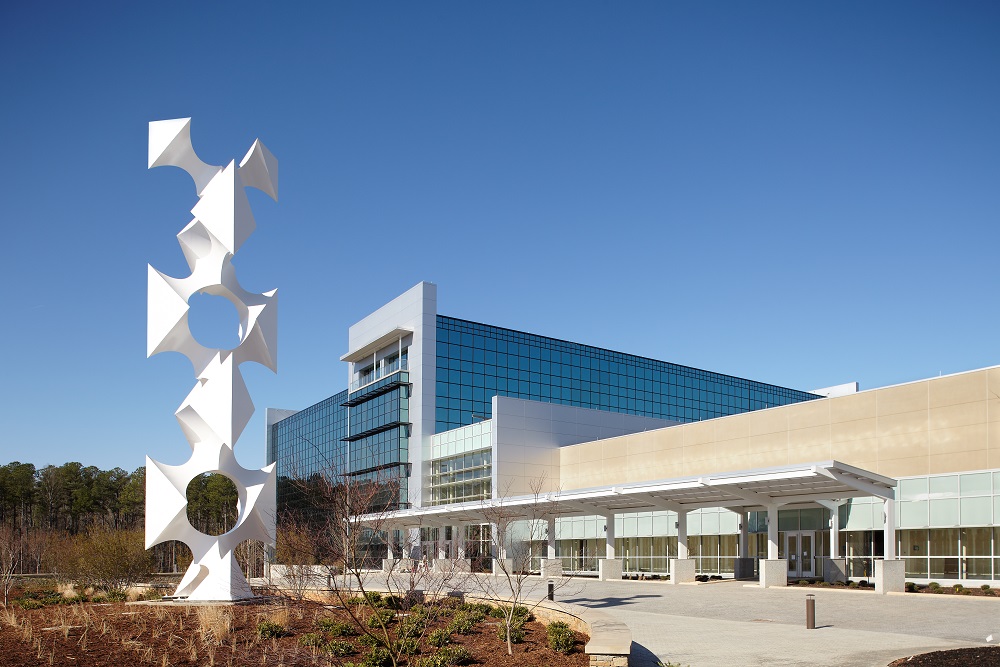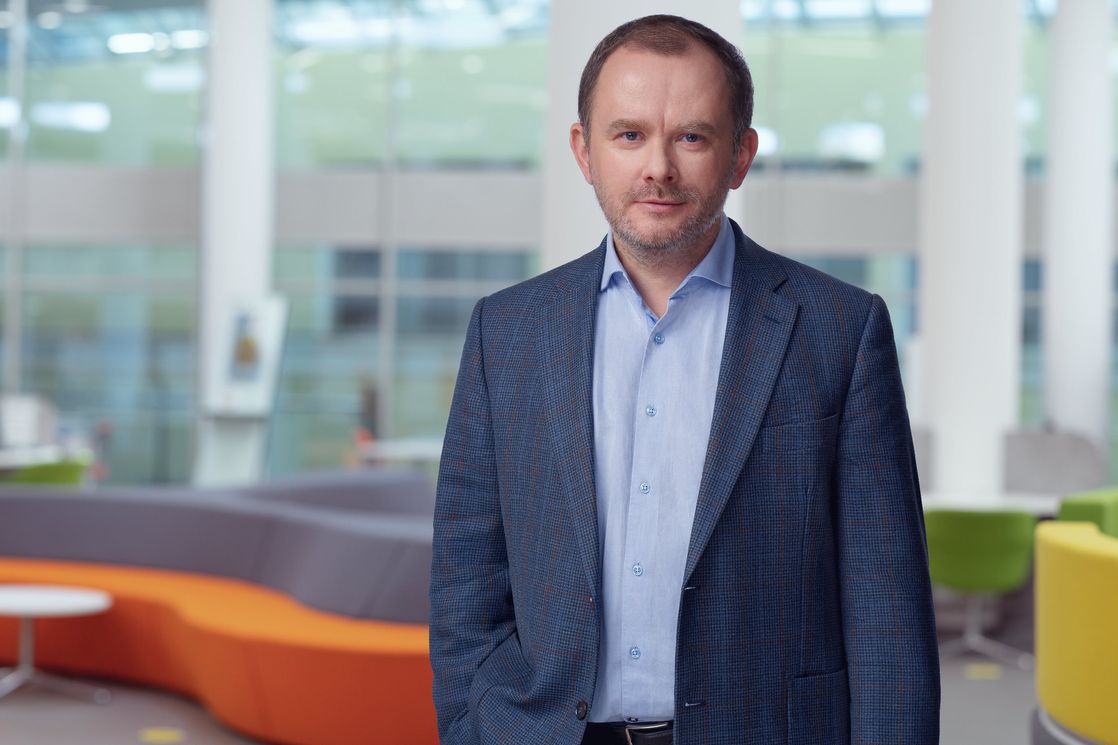HSE University and SAS—Training Top Data Experts

In August 2018, the HSE Faculty of Computer Science launched a Joint Department with SAS, a world leader in analytics software. The Department’s objective is to provide better training for future data experts. The HSE News Service reports on the ideas that have come to fruition and how academic teaching is combined with hands-on training there.
Origins of the SAS Department
The world is seeing ever-increasing quantities of data and more and more examples of its successful application in a wide variety of industries. Business analysts and data scientists are in demand in the financial sector, IT, retail, and many other fields. Demand for such analysts is constantly growing, outstripping supply, and the level of graduates’ training does not always live up to employers’ expectations.
Progressive universities seek to establish partnerships with leaders in analytics and AI technology. This gives students an opportunity to learn from practitioners, get information on the most relevant technologies and the most advanced programming languages, as well as take internships and try their hand at real projects while immersing themselves in the realities of business. Such cooperation gives universities confidence in the skill level of their graduates, while companies get an opportunity to hire talented young specialists and turn them into true professionals.

‘HSE University strives to implement innovative training models based on real cases, so it’s natural that SAS is our partner. We have been cooperating since 2014—practically since the foundation of the faculty. We see great value in opening a department where students can get a full understanding of tasks that require analytics and modern methods of data analysis, as well as familiarise themselves with business processes and implement their own projects. The work of the Joint Department with SAS expands the opportunities available to our students,’ says Professor Ivan Arzhantsev, Dean of the Faculty of Computer Science, HSE University.
During their studies at the Department, students learn practical skills and use case studies to see the effectiveness of business analytics and the application of analytical algorithms to real-world tasks. Students will also learn in-depth analytical techniques and solutions to business problems in areas such as risk analysis and forecasting, customer analytics, data storage and management.
Finding time for studies and work
Employers seek out junior analysts who are still engaged in their university studies. Once students join a company and start working, they have less time to study. The Joint Department with SAS solves this problem by combining academic training with business knowledge through cooperation between the university and the employer. The teachers are experienced SAS employees and practicing experts committed to sharing the company’s accumulated business expertise with their students.

‘We often hear that there are not enough analysts and that education is disconnected from market realities. Last year, SAS expanded its internship programme to include its clients—in other words, our company recruits and trains interns both for itself and for its customers. We have seen how time consuming it is to develop a graduate trainee into an expert. It takes about six months of additional training and exposure to business issues,’ says Julia Sanina, HR Director, Russian and CIS at SAS.
The SAS Department at the HSE Faculty of Computer Science is headed by Nikolay Filipenkov, Candidate of Science (PhD) in physics and mathematics, Head of Credit Scoring and Model Risk Management EMEA at SAS.

The Joint Department with SAS has come a long way since it opened in 2018. We launched an elective course called 'Data Science in Business'. Prominent SAS experts teach on the course, and it has always been a huge success with students. In 2019, 94 students completed the Applied Mathematics and Information Science programme. The Department of Economic Sciences and the Department of Business Informatics, ICEF, as well as the Data Science and Business Analysis programme joined us later. In 2022, as many as 232 students were studying the course. In addition, we launched a pilot project with our colleagues from the Otkritie Group. Our department has also launched some popular university-wide elective courses: ‘Data Science in Client and Text Analytics’, ‘Data Science on the SAS Platform’, and ‘Data Science Case Studies in Game Development’. A new elective course entitled ‘SAS Technologies for Data Mining’ has been prepared for students in the Software Engineering and Applied Data Analysis programmes.
To support the educational process, SAS provides its own teaching and methodology materials, as well as access to the latest software. The company also invites its experts to teach training courses and manage research activities and projects.
The Department supervises students' projects, coursework, and theses. ‘The Joint Department with SAS closely cooperates with the Faculty of Computer Science. It organises hackathons, participates in the juries of the CoCoS Student International Research Conference and the “Young Entrepreneur of the Faculty of Computer Science” scholarship competition, and is involved in defences of students’ dissertations. It invites students and faculty members to its events. The Faculty uses the latest SAS Viya software, which students can use in their academic activities. The partnership between SAS and the HSE Faculty of Computer Science is developing rapidly, which we are very happy about,’ says Nikolay Filipenkov, Head of the Department.
Programme content
The SAS Department offers training not only to students of the Faculty of Computer Science, but also to those from other HSE faculties. For example, the courses and projects offered by SAS attract students from the HSE Faculty of Economic Sciences.
One such course is ‘Data Science in Business’. Students study mathematical models and algorithms, analysing examples of their application in areas such as customer analytics, risk management, and demand planning in retail. This allows students to understand the whole life cycle of an analytical model, from generating requirements and preparing data to implementation and operation.
By the end of the course, students are able to visualize and interpret data, build forecast models and perform data analysis without writing code. Students also learn to identify which business-influencing factors need to be analysed first, as well as how to evaluate the results of business data analysis and conduct feasibility studies of their analytical projects.
An average of 11 HSE Computer Science students do internships at SAS and SAS partner companies.
The top students receive certificates and an invitation to join an internship programme at SAS or major SAS client companies.
While the course is in high demand, the SAS Department offers other courses that may be of interest to students. For more information, please see here.
Combining research activity and business solutions
Studying in the Department also involves doing research. To write a course paper or thesis, students have to solve a real business problem or conduct in-depth research.
Topics of study at the SAS Department
Financial, credit, and operational risk management
Customer analytics
Fraud detection
Big data management and analysis
Supply chain management
Business processes optimization
In the last three years, more than 600 students have taken the Department’s courses and completed more than 50 course papers, theses, and projects. Students of the Data Science in Business course have completed more than 60 student projects.
Each student has a mentor who is committed to ensuring that the student’s work produces high-quality results. In addition to offering internship opportunities, the Department also engages students in real research projects.
Ivan Arzhantsev
Dean, HSE Faculty of Computer Science
Nikolay Filipenkov
Head, Joint Department with SAS
See also:
HSE University and Yandex Education Release Free Online Handbook in Math and Data Analysis
Experts from the HSE Continuing Education Centre, the Master's Programme 'Artificial Intelligence', and Yandex Education have developed and published a free math handbook in data analysis (in Russian). This is the seventh online publication in a series of digital self-study textbooks dedicated to specific IT areas.
‘Bots Are Simply Imitators, not Artists’: How to Distinguish Artificial Intellect from a Real Author
Today, text bots like ChatGPT are doing many tasks that were originally human work. In our place, they can rewrite ‘War and Peace’ in a Shakespearean style, write a thesis on Ancient Mesopotamia, or create a Valentine’s Day card. But is there any way to identify an AI-generated text and distinguish it from works done by a human being? Can we catch out a robot? The Deputy Head of the HSE School of Data Analysis and Artificial Intelligence, Professor of the HSE Faculty of Computer Science Vasilii Gromov explained the answer in his lecture ‘Catch out a Bot, or the Large-Scale Structure of Natural Intelligence’ for Znanie intellectual society.
HSE and Indian Institute of Technology Delhi Agree on Joint Research Projects
HSE University-St Petersburg and the Indian Institute of Technology Delhi (IIT Delhi), a leading Indian university, have agreed to launch joint research projects in the field of social, political studies, humanities, and data analysis for master's students. On the Russian side, this work will be coordinated by the HSE St Petersburg School of Social Sciences.
Master's Programme in 'Data Science' Accredited by AI Alliance Russia
Based on the assessment results, the programme's strengths were identified as its broad coverage of educational disciplines, in-depth exploration of theoretical aspects in machine learning, the quality of staff, and the involvement of potential employers. This is the fifth educational programme at the HSE Faculty of Computer Science to receive this prestigious professional and public accreditation.
At Sarov Technopark, Researchers from HSE Faculty of Computer Science Discussed AI for Data Analysis in Physics
The Laboratory of Methods for Data Analysis of the HSE Faculty of Computer Science, in collaboration with the All-Russian Research Institute of Experimental Physics (RFNC-VNIIEF, Sarov) and the National Centre for Physics and Mathematics, recently held the Second All-Russian School-Seminar on High Energy Physics and Accelerator Technology.
HSE University and Samolet to Train Data Analysts in Development
HSE University’s Faculty of Computer Science and Samolet, one of Russia’s largest development companies, are launching a new Master’s Programme 'Data Science for Construction, Architecture and Engineering'. Samolet will finance the tuition of the 30 best applicants on the programme.
‘Smart and Bright: Winners of Data Analysis National Olympiad Announced
The awards ceremony for the winners of the Data Analysis National Olympiad (DANO) has taken place at the HSE Cultural Centre. This is the second time the Olympiad has been held, and was organized by HSE University together with Tinkoff. About 7,000 participants from different regions of Russia and 13 other countries took part in the event. Those coming in the top 25 of the individual ratings will be able to study at HSE University for free.
Over 7,000 Students Take Part in Data Analysis National Olympiad
Data analysis enthusiasts from different regions of Russia and 13 foreign countries recently took part in the Data Analysis National Olympiad (DANO). The results of the first round will be announced on October 20th.
HSE Faculty of Computer Science Celebrates its First Graduates of the Data Science and Business Analytics Programme
At the beginning of July, the Data Science and Business Analytics programme at the HSE Faculty of Computer Science held its first graduation ceremony. Most graduates have already found jobs in various fields—Data Science, development, product management, systems analysis, and so on. Many of the bachelors plan to continue their studies at the best international and Russian universities, but they are not going to say goodbye. ‘We have been and will always be one big team,’ they say.
Bachelor's Programme in Data Science and Business Analytics Accredited by AI Alliance Russia
The ‘Data Science and Business Analytics’ bachelor’s programme at HSE Faculty of Computer Science has received professional and public accreditation by the AI Alliance Russia. This is the third programme of the faculty that has received accreditation from the AI Alliance Russia, following the bachelor's programme in ‘Applied Mathematics and Information Science’ and the master’s programme in ‘Financial Technologies and Data Analysis’.


